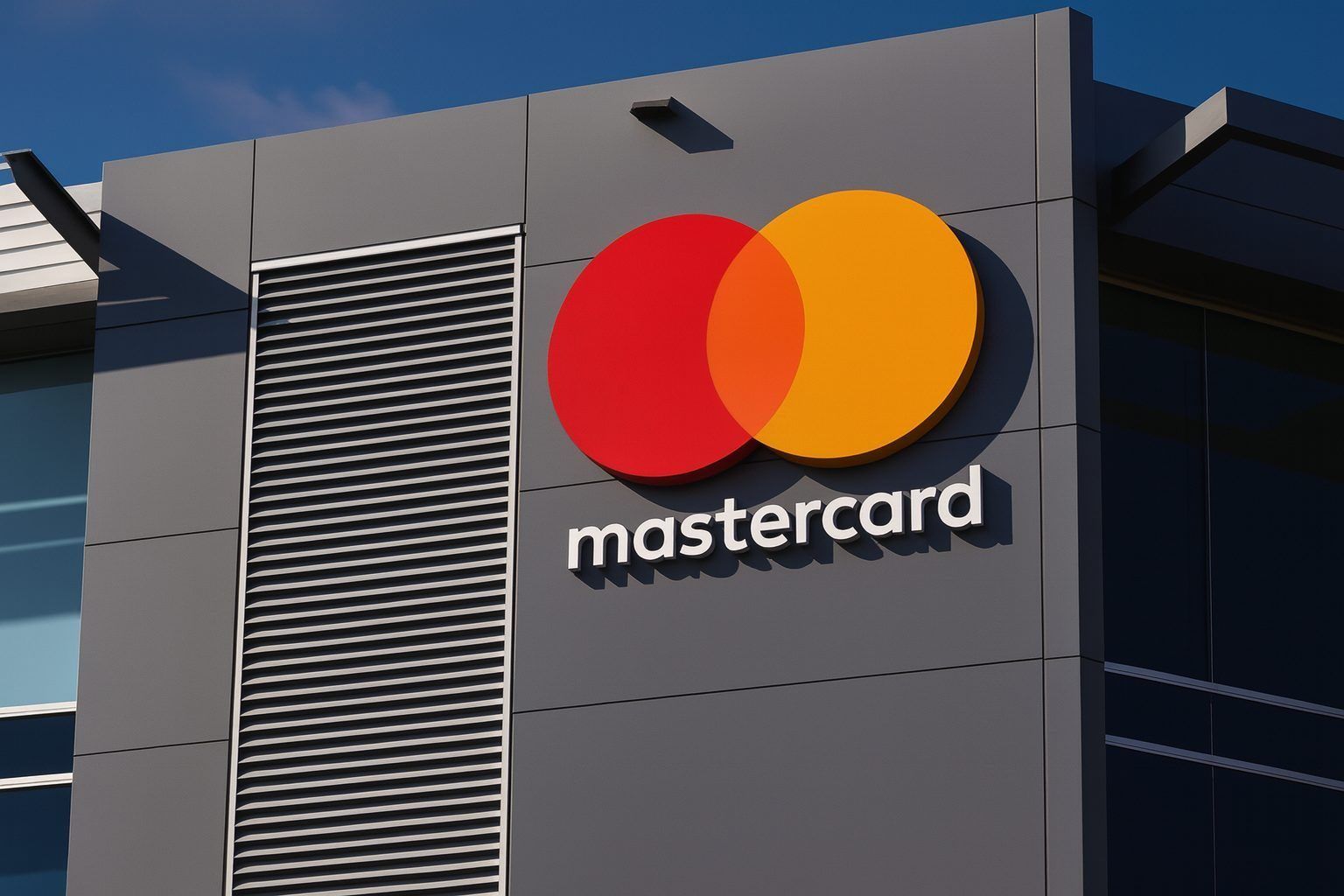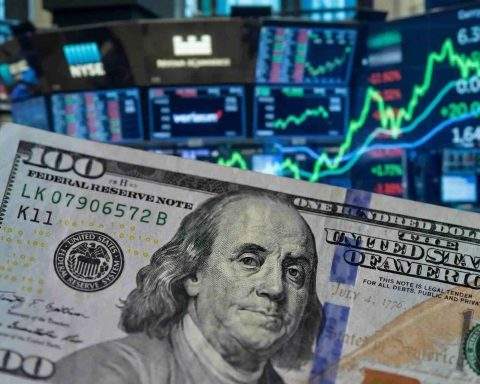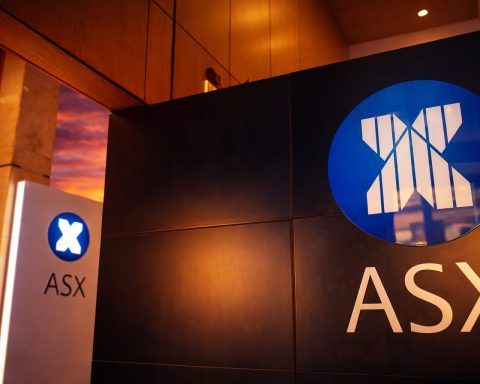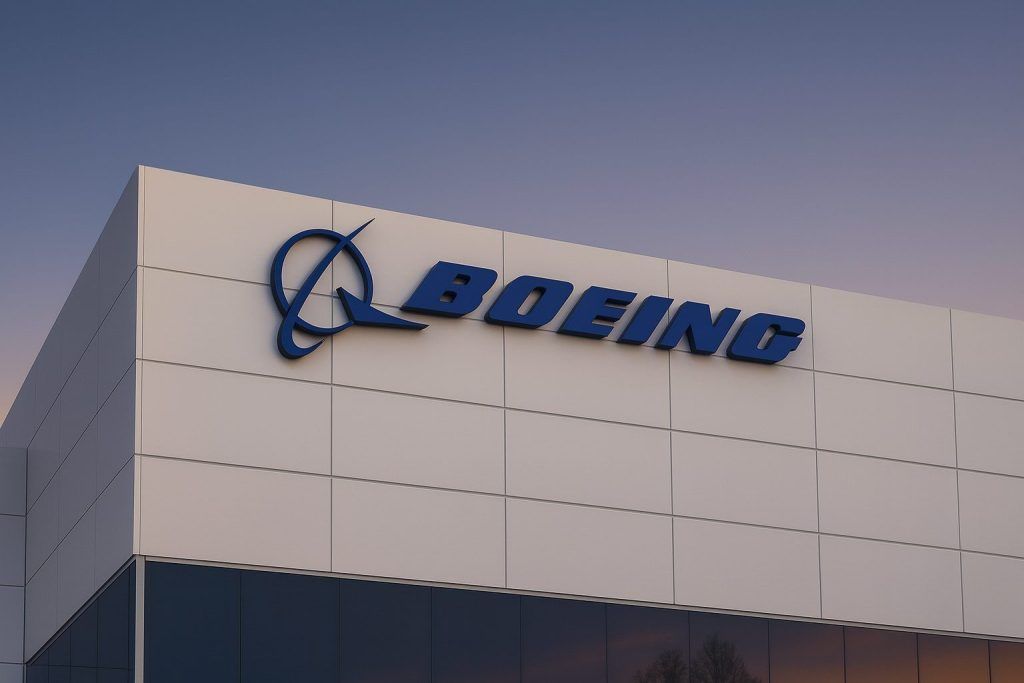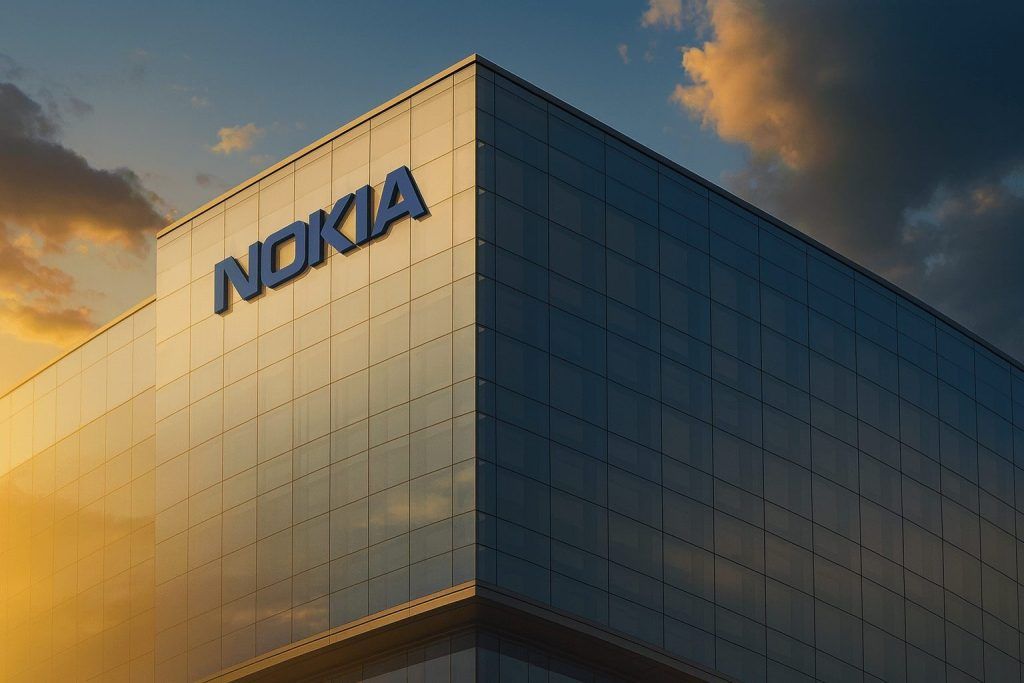Key takeaways for Mastercard stock (NYSE: MA) today
- Mastercard shares are trading around $547, up roughly 0.1–0.2% on Wednesday, leaving the stock about 9–10% below its 52‑week high near $602. MarketWatch+1
- New data from Mastercard’s 2025 Europe holiday outlook forecasts retail spending (ex‑autos) up about 3.1% year over year, signalling a “steady festive rebound” driven by smaller, more affordable gifts and experiences. Retail Insight Network+1
- A Latin America & Caribbean cybersecurity survey shows 80% of consumers feel capable of protecting themselves online, yet 47% say fraud and scams are their top concern, underscoring why Mastercard has invested about $11 billion in cybersecurity over five years and launched its Threat Intelligence platform. Business Wire+1
- New B2B research with 1,100+ procurement leaders finds 79% say digitizing procurement is a top priority and 83% expect embedded finance to shape the future of procurement, highlighting long‑run tailwinds for virtual cards and B2B payment solutions. Supply Demand Chain Executive
- A wave of institutional filings today shows large investors like Russell Investments, the Employees Retirement System of Texas and Blue Whale Capital increasing stakes in MA, even as others trim positions, while 29 analysts now rate the stock “Buy” on average with a consensus 12‑month price target around $652.50. MarketBeat+3MarketBeat+3MarketBeat+3
All figures and headlines below are current as of U.S. market hours on Wednesday, November 26, 2025.
Mastercard share price on 26 November 2025: quiet session after a strong Tuesday
Mastercard Incorporated (NYSE: MA) is posting a modest gain today. Real‑time market data shows the stock trading near $547 per share, up about $0.79 (roughly +0.15%) versus Tuesday’s close around $546.47. MarketWatch
That move comes after yesterday’s 1.6% advance, which already pushed MA higher in a broadly positive market session. Even so, the stock remains roughly 9–10% below its 52‑week peak around $601.77, set in late August, and below its all‑time closing high of about $598.17. MarketWatch+1
On a year‑to‑date basis, different data providers put Mastercard’s total return in the mid‑single‑digits (around 4–5%), meaning the stock has lagged the strongest large‑cap benchmarks, despite delivering double‑digit earnings growth. Yahoo Finance+2MarketBeat+2
Valuation remains elevated but off the highs: trailing P/E is roughly 35x earnings, versus a 12‑month average near 39x, and forward P/E sits around 28–29x, reflecting expectations for continued high‑teens EPS growth. MarketBeat+3Yahoo Finance+3Public+3
Holiday outlook: Europe’s shoppers seen fueling a 3.1% “festive rebound”
One of today’s most market‑relevant headlines for Mastercard is its 2025 holiday forecast for Europe. A new outlook, carried via Retail Insight Network and Business Wire, suggests: Retail Insight Network+2Yahoo Finance+2
- Overall retail spending (excluding automotive) is expected to grow about 3.1% year over year across Europe this holiday season.
- The mix is shifting toward smaller, more affordable gifts and experiences, rather than high‑ticket luxury splurges.
- Consumers are still keen to spend but are looking for value and flexibility, a pattern that tends to favor electronic payments over cash.
For Mastercard investors, this matters because Europe is a major region for cross‑border travel, e‑commerce, and card‑present retail, all of which feed into the company’s gross dollar volume (GDV). Moderate, positive growth in European spending supports the narrative that global consumer demand remains resilient heading into the final quarter of 2025.
It also dovetails with commentary from earlier this month that consumers in key markets “are ready to shop” but increasingly budget‑conscious — an environment where rewards cards, BNPL partnerships, and digital wallets can stretch purchasing power without sacrificing convenience. Finviz+1
Cybersecurity in focus: Latin American survey shows confidence and anxiety in digital payments
A new regional cybersecurity sentiment survey released today by Mastercard in Latin America and the Caribbean is another key theme investors are watching. Business Wire+1
Highlights of the study:
- 80% of respondents say they feel capable of protecting themselves online — a sign of growing digital maturity.
- At the same time, nearly half (47%) say fraud and scams are their biggest frustration when transacting digitally.
- AI‑driven threats such as deepfakes and voice cloning are already on the radar: around 43% cite them as emerging risks changing how safe they feel online.
- Debit and credit cards remain dominant for everyday spending, while real‑time transfers and digital wallets are rapidly gaining share.
Mastercard’s response is central to its equity story. The company notes that it has invested roughly $11 billion in cybersecurity over the past five years and is rolling out Mastercard Threat Intelligence, a platform designed to apply threat intelligence at scale so banks can detect and stop fraud before it hits end users. Stock Titan+1
Digital Transactions News picked up the survey today, describing fraud as a “pressing concern” across digital payments and highlighting Mastercard Access Pass as one way the network is bundling security with richer consumer experiences. Digital Transactions+1
For shareholders, the implication is twofold:
- Defensive moat – Mastercard’s heavy AI, data, and cyber investment is a key differentiator versus both traditional competitors and newer fintech challengers.
- Regulatory positioning – Demonstrating proactive risk management helps the company stay ahead of regulators at a time when interchange fees, open banking, and data privacy are under intense scrutiny globally. Reuters+1
Digitizing procurement: embedded finance and virtual cards as B2B growth drivers
Beyond consumer payments, Mastercard is pushing hard into B2B and procurement — a theme reinforced by a new survey released today and covered by Supply & Demand Chain Executive. Supply Demand Chain Executive
Key data points from more than 1,100 global procurement leaders:
- 79% say digitizing procurement is a top organizational priority.
- 83% believe embedded finance will shape the future of procurement, by integrating payments directly into ERP and procurement platforms.
- 74% expect at least 25% of their transactions to shift to virtual cards within three years.
- Among current users of embedded finance, roughly 73% report better cash‑flow visibility and 71% report cost savings, while 74% say embedded solutions reduce fraud risk.
This is strategically important for Mastercard because:
- Virtual cards and embedded payments are higher‑margin, data‑rich products compared with many legacy B2B payment rails.
- As more companies digitize invoices and approvals, card‑based B2B volume can grow even in a lukewarm economic backdrop.
- Embedded finance also creates stickier integrations with software partners, extending Mastercard’s reach beyond consumer cards into the core of enterprise operations.
For investors, today’s procurement survey reinforces the idea that MA’s addressable market in B2B payments still has substantial headroom, especially as AI‑driven decisioning and automated workflows become standard in corporate finance teams.
New products and partnerships: Access Pass, Ethiopian expansion and regional awards
Access Pass: personalization and fandom without issuing new cards
Fintech Finance News today spotlighted Mastercard Access Pass, a recently announced program now rolling out with the McLaren Formula 1 Team and First Abu Dhabi Bank (FAB). FF News | Fintech Finance+1
Access Pass lets banks and brands:
- Overlay exclusive digital card art and perks on top of existing Mastercard debit, credit or prepaid cards.
- Give fans instant access to benefits — such as behind‑the‑scenes McLaren content, special events and merchandise — simply by activating a “pass” in their digital wallet.
- Drive “top‑of‑wallet” behavior without the friction and cost of issuing a brand‑new physical card.
For a growth stock like Mastercard, this is about turning payment credentials into engagement platforms. It monetizes cardholder passion (sports, music, travel, etc.) while generating incremental volume for issuers and merchants.
Awash Bank partnership: deepening roots in Ethiopia’s digital economy
Multiple Ethiopian business outlets and Mastercard‑linked posts today reported that Awash Bank has entered a strategic partnership with Mastercard to expand digital payments in Ethiopia. Facebook+3StockMarket.et+3birrmetrics.com+…
The agreement aims to:
- Strengthen Ethiopia’s digital payments infrastructure, including modern gateways and card issuance.
- Support financial inclusion by enabling more consumers and small businesses to access secure electronic payments.
- Build on earlier collaborations with EthSwitch, the national payments switch, to connect local institutions to international networks. StockMarket.et+1
Ethiopia is a large, young market with relatively low card penetration. While this partnership won’t move Mastercard’s near‑term earnings needle by itself, it underscores the company’s long‑term emerging‑markets strategy, where even modest per‑capita volume growth can compound meaningfully over time.
Regional recognition: Mastercard Excellence Awards and African acquirers
Elsewhere today:
- In Bangladesh, Mutual Trust Bank (MTB) was recognized with four awards at the Mastercard Excellence Awards 2025, including categories spanning credit, prepaid, affluent cards and innovation — the highest tally for any bank at this year’s event. The Business Standard
- In Nigeria, Moniepoint highlighted multiple accolades including recognition at the Mastercard EDGE Awards, underscoring how local fintechs are leveraging the Mastercard network to scale SME payments. Nairametrics
Regional awards don’t directly affect the share price, but they show Mastercard deepening relationships with high‑growth local banks and fintechs, which can translate into higher issuance, acceptance and transaction volume over time.
Tech hubs and AI: building the infrastructure behind 159 billion transactions
A feature published today in Cyber Magazine with Nicole Turner, Senior Vice President of Workplace Experience at Mastercard, adds more color to the company’s long‑term technology moat. Cyber Magazine
Key points:
- Mastercard operates seven global Tech Hubs — in St. Louis, New York, Arlington, Dublin, Pune, Sydney and Vancouver — which together house over 40% of its workforce and support activities from AI and analytics to network operations.
- These hubs help run a payments network that processes around 159 billion transactions annually across 150 currencies in 220 countries and territories.
- In Vancouver, the company has invested about US$510 million in its Global Intelligence and Cyber Centre of Excellence, which has generated more than 280 patents as of mid‑2025 and focuses on hunting vulnerabilities, working with regulators, and setting new cybersecurity standards.
For investors, this underlines why Mastercard’s valuations remain above many financial peers: the company is not just a card network; it is a global software, AI and data‑security platform with considerable intellectual property.
Institutional flows and Wall Street sentiment: still a consensus “Buy”
A dense stream of 13F‑related headlines hit the tape today, mostly reflecting second‑quarter institutional positioning but released now via MarketBeat and other aggregators. Highlights include: MarketBeat+6MarketBeat+6MarketBeat+6
- Russell Investments Group Ltd. increased its holdings by about 49,000 shares, to roughly 1.9 million shares valued at more than $1.0 billion, making MA its 8th‑largest holding. MarketBeat
- The Employees Retirement System of Texas boosted its position by roughly 9.1% to about 329,500 shares worth $185 million, now its 11th‑largest position. MarketBeat+1
- Blue Whale Capital LLP raised its stake by 13.6%, to about 59,500 shares worth $33.4 million, with Mastercard representing roughly 2.2% of its portfolio. MarketBeat
At the same time, several firms — including Thornburg Investment Management, Wambolt & Associates, Silphium Asset Management, Maia Wealth and Financial Advocates Investment Management — reported trimming or partially exiting positions, often after strong past gains. MarketBeat+4MarketBeat+4MarketBeat+4
Net‑net, the filings reinforce a picture of broad institutional ownership and portfolio rebalancing rather than a wholesale shift away from the name.
On the sell‑side, a fresh MarketBeat summary out today notes that: MarketBeat+1
- 29 research firms currently cover Mastercard.
- The average rating is “Buy”, with 22 “Buy” recommendations, 4 “Strong Buy” ratings and 3 “Hold” calls.
- The consensus 12‑month price target is about $652.50, implying mid‑teens to ~20% upside from around $547.
- Q3 2025 results showed EPS of $4.38 versus $4.31 expected, and revenue of $8.60 billion, up about 16.7% year over year.
- The company maintains very high profitability, with net margins in the mid‑40% range and exceptionally high return on equity, amplified by its asset‑light model. MarketBeat+2FullRatio+2
Mastercard also continues to return capital via a quarterly dividend of $0.76 per share (about $3.04 annually, a yield around 0.6%) alongside an existing $12 billion share repurchase authorization announced in late 2024. MarketBeat+1
Regulatory watch: the $38 billion swipe‑fee settlement still looms in the background
While not a new headline today, investors are still digesting this month’s revised $38 billion settlement that Visa and Mastercard reached with U.S. merchants over so‑called “swipe fees” (interchange), after a previous $30 billion proposal was rejected by a judge as inadequate. Reuters
Under the updated deal:
- Swipe fees would be cut by about 0.1 percentage point for five years, from an average around 2.35% in 2024.
- Merchants would gain more control over which types of cards they accept (standard, premium, commercial).
- Rates on standard consumer cards would be capped for eight years at roughly 1.25%, more than a 25% reduction.
Merchant groups remain critical, arguing that the accord still leaves fees too high and doesn’t fully address network power. But if approved, the settlement could remove a long‑running litigation overhang while modestly pressuring revenue yields — something equity analysts have already begun to factor into their longer‑term models. Reuters+1
How today’s news fits the bigger picture for Mastercard stock
Putting all of today’s developments together, the narrative for MA on November 26, 2025 looks like this:
- Near‑term demand remains resilient
- Europe’s holiday outlook suggests low‑single‑digit growth in retail spending, supportive of Q4 volumes. Retail Insight Network+1
- Consumers remain active but selective, favoring value, rewards, and experiences, which aligns well with card‑based and digital payments.
- Security and trust are front and center
- The Latin America & Caribbean survey highlights a paradox of confidence and concern: consumers feel digitally capable but are highly worried about fraud and AI‑powered scams. Business Wire+2Stock Titan+2
- Mastercard’s multibillion‑dollar cyber and AI investments, plus its global Tech Hubs, are designed to keep the network one step ahead of attackers — a key differentiator that supports its premium valuation. Cyber Magazine+1
- B2B and embedded finance offer a long runway
- New procurement research underscores how virtual cards and embedded payments are moving from optional to essential infrastructure for large organizations. Supply Demand Chain Executive+1
- Global partnerships deepen the moat
- From Awash Bank in Ethiopia to recognition of banks and acquirers across Africa and South Asia, Mastercard is continuing to embed itself in high‑growth markets where digital payments are still in early innings. Nairametrics+3StockMarket.et+3birrmetrics.…
- Wall Street remains bullish, but expectations are high
- Consensus “Buy” ratings, a double‑digit earnings‑growth outlook, and a P/E ratio around 35x mean the market is still pricing Mastercard as a high‑quality compounder, not a value stock. MarketBeat+2Simply Wall St+2
- That leaves shares sensitive to any disappointments on regulation, macro conditions, or technology execution.
Bottom line
For today, November 26, 2025, Mastercard stock is trading calmly, digesting a stack of constructive but not explosive news:
- A solid European holiday spending outlook,
- Fresh evidence that cybersecurity, fraud prevention and embedded finance are central to its long‑term growth,
- Ongoing expansion in emerging markets, and
- Strong institutional and analyst support, balanced against elevated valuation and regulatory headwinds.
Nothing in today’s headlines fundamentally changes the Mastercard story, but they reinforce the core thesis: MA remains a dominant, high‑margin payments network investing heavily in AI, security, and new use cases, with meaningful optionality in B2B and emerging markets.
As always, this article is informational only and not financial advice. Anyone considering an investment in Mastercard should review the company’s official filings, earnings presentations and their own risk tolerance before making decisions.
